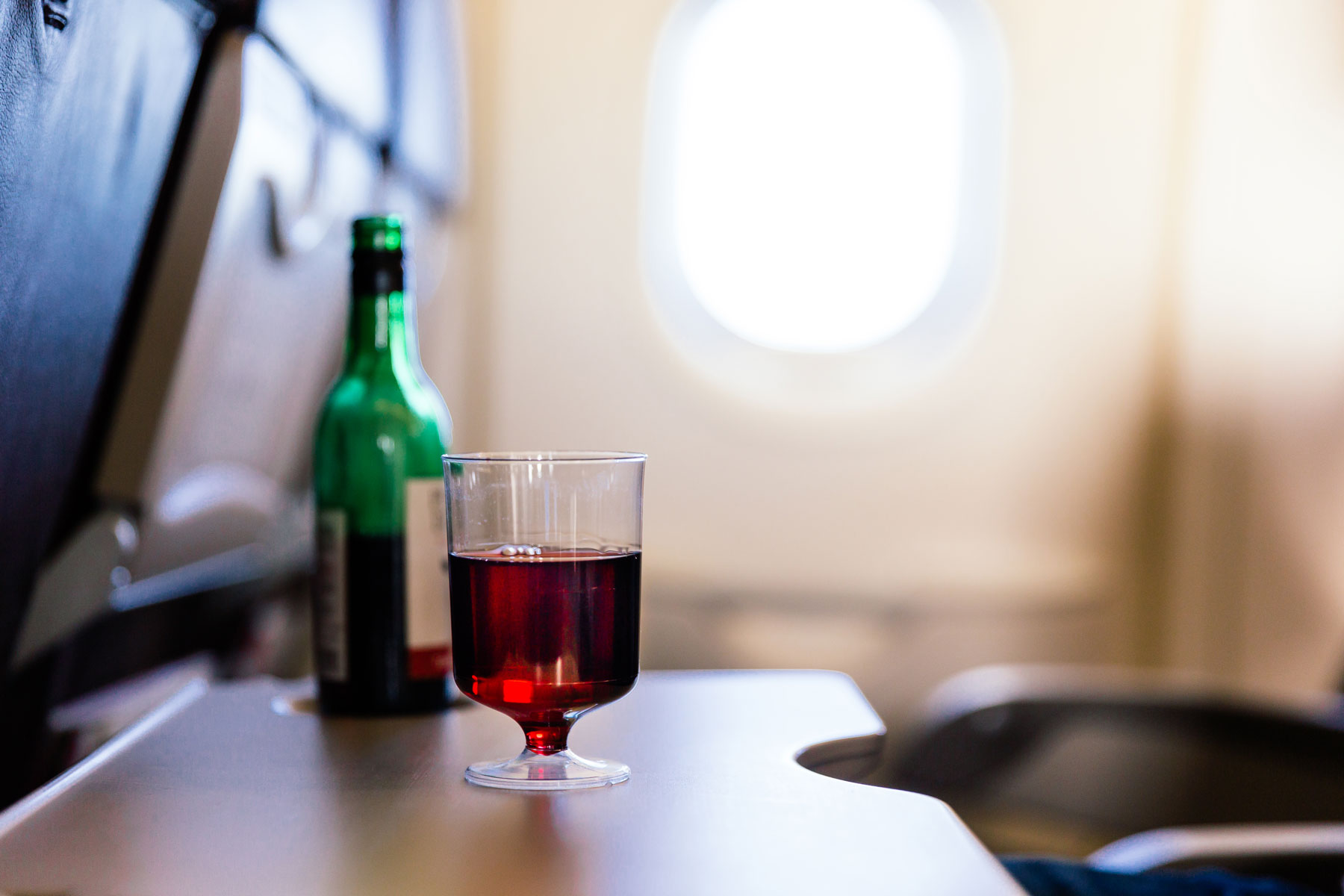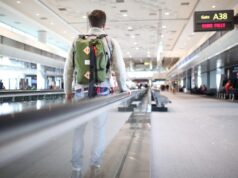That’s right, the US government has been trying to ban drinking alcohol on airplanes since at least the 1950s. In the wake of the “Malaysia Airline” disaster of 1949, the Federal Aviation Agency (FAA) implemented a rule that stated that “no alcoholic beverages may be served on board domestic or foreign air carrier aircraft” as a result of federal law. The FAA has had a complicated relationship with alcohol since the 1960s, and there was a brief ban on the sale of alcohol aboard domestic flights in the mid-1980s in response to the crash of a Trans World Airlines flight on September 1, 1982.
It’s not just beer that makes air travel such a pain. Alcohol has been banned on planes for the past 40 years, but it’s not always clear why. The most common explanation given is that the alcohol dehydrates the passengers, and can make them more likely to fall ill. However, studies have consistently proven that alcohol dehydrates people only if they are already dehydrated. Many of the passengers who use the argument that alcohol dehydrates them don’t smoke, and they are well hydrated. It’s also a myth that alcohol dehydrates people. A study published in the American Journal of Public Health in 2000 found that the more alcohol consumed, the higher the chance of death amongst the ten thousand people in the study.
When the United States government banned alcohol on flights in the 1950s, airlines had to find a different way to serve alcohol on airplanes. While the FAA has said it wants to make air travel safer by banning liquids, the agency has been unable to do so because of legal challenges.. Read more about airline news and let us know what you think.
Attempts have been made since the 1950s to ban alcohol on aircraft
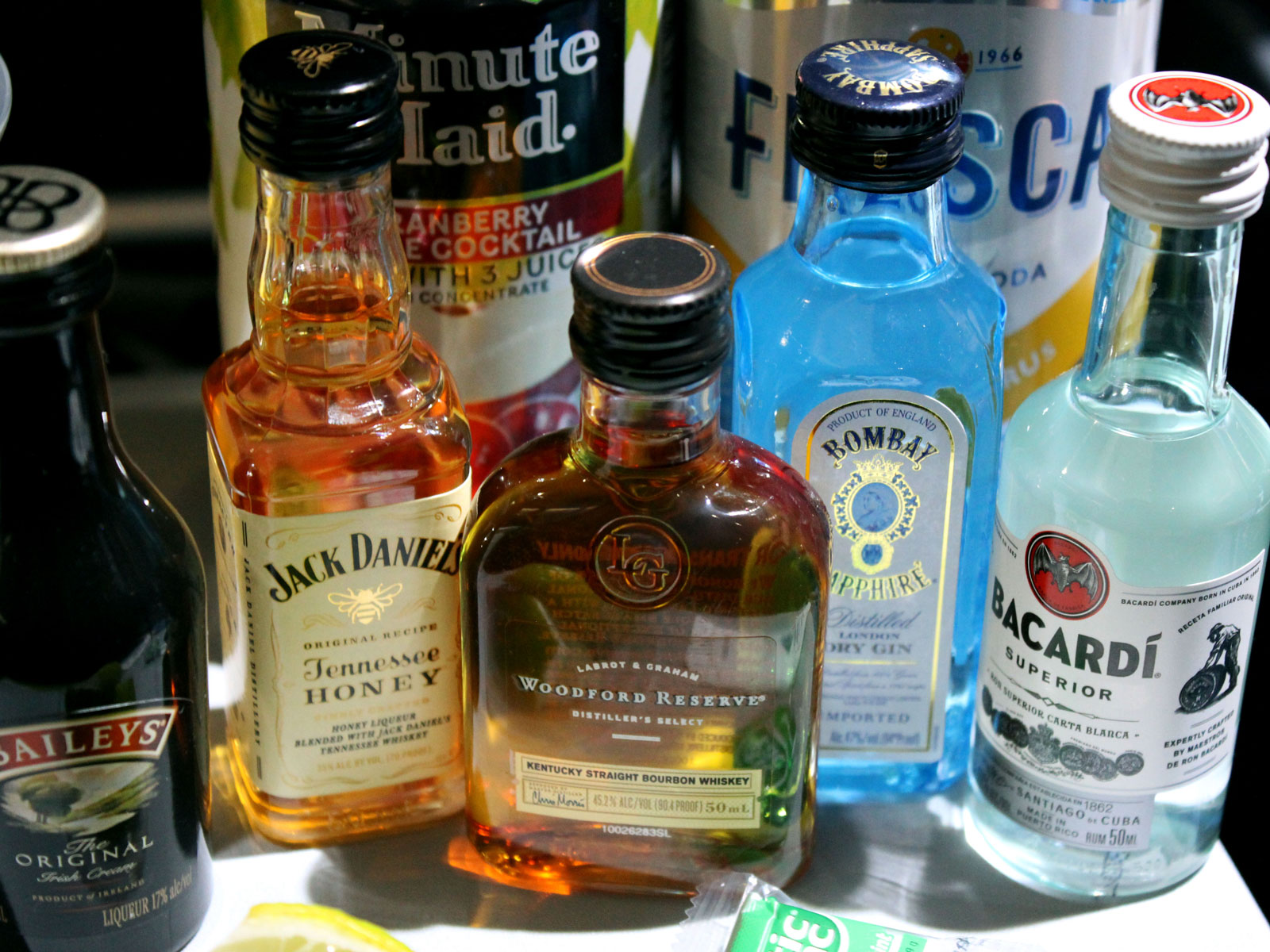
Gary Leff 10. June 2024 Sarah Nelson, president of the flight attendants union, is calling for a nationwide ban on alcohol on planes. American Airlines and Southwest have postponed the reintroduction of in-flight alcohol, which had been suspended during the pandemic (although American Airlines will continue to serve alcohol before the flight). United, oddly enough, has agreed not to serve alcohol in economy class on flights under 800 miles unless the flight is between two hubs.
This is especially strange because a passenger on a long flight may drink more and be more likely to have a problem. Calling for a ban on alcohol obviously has nothing to do with passenger behavior. The call for a ban on alcohol on board is not new. It goes back to the mid-1950s, during the 84th Congress. Congress when Senator Strom Thurmond introduced legislation to end what he called flying saloons. Thurmond served 48 years in the Senate. Before that, he was governor of South Carolina. He ran for president in 1948 as a racial divider and won four states.
I’m old enough to remember how Strom Thurmond campaigned in his last election. In 1996 he gave a speech in which he declared himself a candidate of the pig industry: I can bring more money to South Carolina in the next 6 years than my opponent can in 60 years! Despite this, he unhesitatingly maintained his support for smaller government and term limits. Thurmond lobbied the Senate for a total ban on alcohol. He stated that he refrains from consuming alcohol, but wants to prohibit it to other passengers on board for various reasons,
- Safety. Thurmond argued that the unregulated consumption of alcohol by airline passengers posed a threat to safety because an intoxicated passenger could [take control of the aircraft during flight] or . distract pilots from their duties and put many lives at risk.
- Too much work for flight attendants. Like Sarah Nelson, Mr Thurmond deplores the fact that serving alcohol places an unnecessary burden on airline staff, who are responsible for the safety and comfort of passengers. Even then, flight attendants were on the front lines of the fight against alcohol prohibition, just as Ms. Nelson is today.
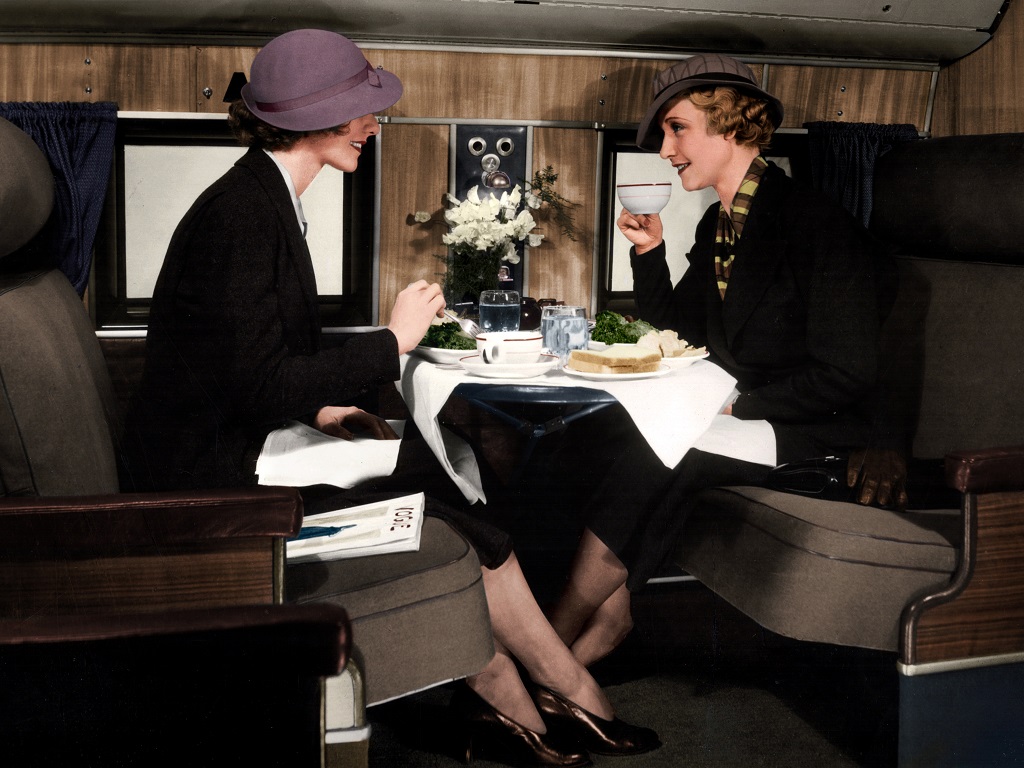
Thurmond continued: Ms. Peterson, a representative of the Flight Attendants Association, told me of several embarrassing incidents that have occurred because passengers were drinking onboard aircraft. … Congress must protect the dignity of the young women who work as flight attendants on these planes.
- For non-drinkers. The consumption of alcohol on aircraft cannot be limited to the bar carriages, as is the case on trains. There is also the problem of children accompanying their parents and others on flights. Moral decency requires that we keep our children away from bars and liquor stores. At the same time, our children must be protected from the flying limousines that now exist…..
- Alcohol and transport do not mix. It’s like drinking and driving on steroids because you need less alcohol to get high (of course, the passengers don’t drive the plane and the pilots don’t drink – they’re our designated drivers).
He reiterated his claim that offering alcohol on board creates a stigma for flight attendants who serve as bartenders. And he wanted to prohibit not only serving but also consuming alcohol during the flight, for fear that passengers would bring their own. Thurmond has struggled with alcohol for most of his life.
In the late 1990s, he introduced legislation to raise taxes on wine, which he blamed for high blood pressure, breast cancer, and birth defects, and to give the Bureau of Alcohol, Tobacco, and Firearms more control over advertising. Thurmond said the ban on alcohol on airplanes generated more letters from constituents than the so-called Civil Rights Act and was one of the most important safety measures in Congress in 1957.
Sixty-four years later, we are still here, there is no legal segregation, and serving alcohol on board is not prohibited by law. Later, Thurmond’s chief of staff was informally called the 101st Airborne Division. The senator who exercised Thurmond’s authority. Two years before the end of his last term, he considered leaving his Senate seat to his second ex-wife because he thought it would make her happy. Abstinence from alcohol didn’t stop Strom Thurmond from misbehaving, of course. He was known to touch women inappropriately throughout his career.
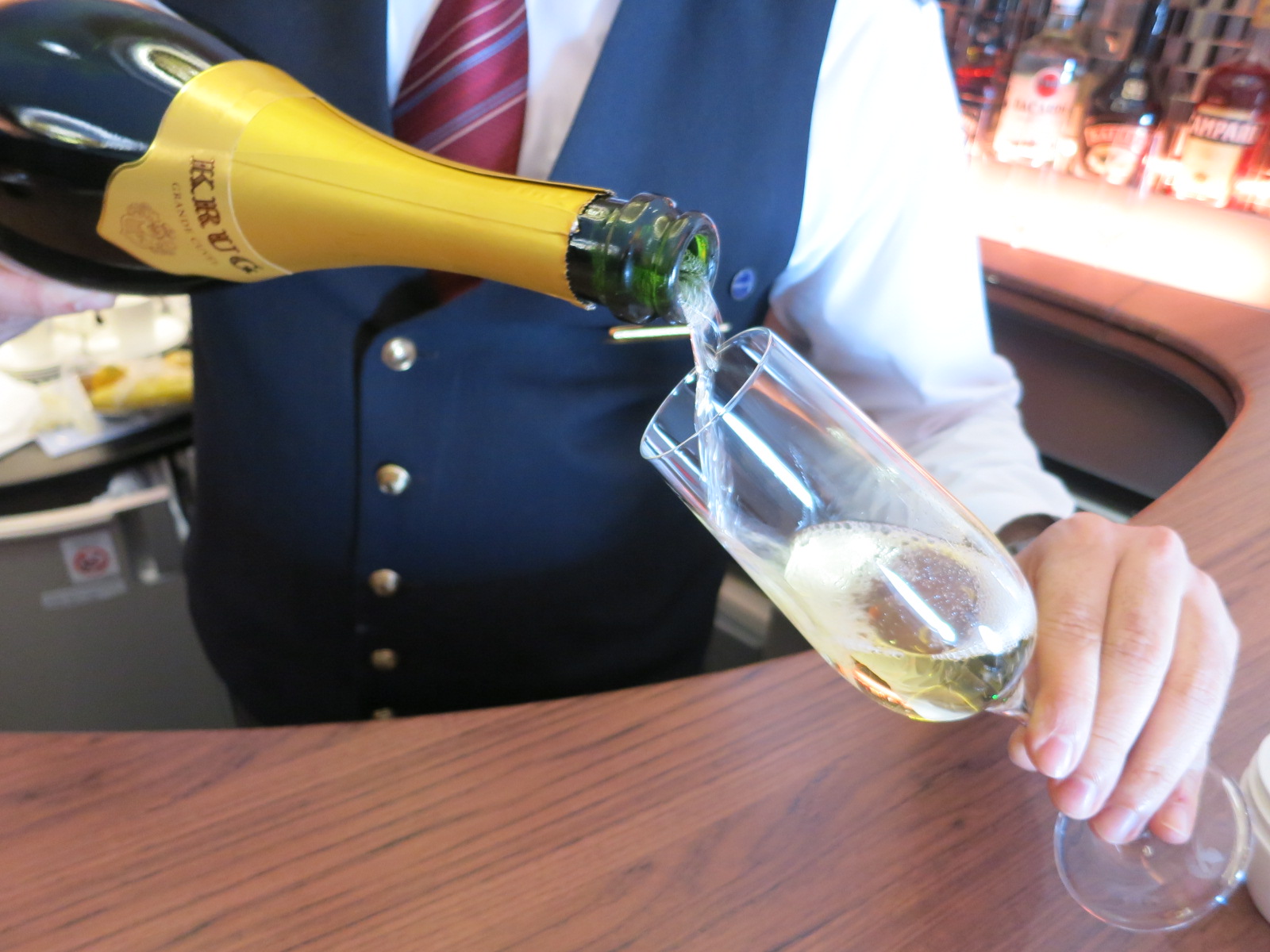
Lake View from the Wing
Frequently Asked Questions
When did it become illegal to drink on a plane?
Alcoholic beverage consumption on flights has been prohibited since the early 1950s. But why now? What changed? Although you may have seen this in an early episode of “Airplane!”, the drink-and-fly phenomenon has been around as long as airplanes themselves. Blame the airlines for putting up the signs and “no alcohol on this plane” policies, or blame the government for passing laws about on-board drinking, but you can’t blame the passengers.
Is alcohol being served on planes?
A ban on drinking on flights has long been advocated by the travel industry and many airlines have already stopped serving alcohol on domestic flights. But there are reasons to think that this might not be such a good idea. The first is that, unlike other modes of transport, the air is a very public space and it should be a place where we can relax, enjoy our surroundings and feel safe.
The second is that there are well-known health risks associated with drinking while flying, and we should all be responsible for the safety of our passengers. For years travellers have been complaining about drunken passengers, only for authorities to brush aside calls for a ban. Now however, the science has moved on. In a new study published in the Journal of the American Medical Association, scientists have claimed that mild and moderate alcohol consumption may increase the risk of cancer.
Is American Airlines serving alcohol on flights?
Alcohol prohibition wasn’t the first time a government group made the decision to outlaw a substance from a plane, and it wasn’t the last. In fact, over the years, the only thing that’s continuously banned from commercial airliners are knives, firearms, and dangerous chemicals. But where do we go from here? Currently, the only way to get alcohol on planes is if a specific carrier agrees to serve it. Does this mean they’re able to serve it all the time? What are the standards for serving alcohol on an aircraft?
That’s right, American Airlines has changed their policy on serving alcoholic beverages on flights, and they now offer alcoholic drinks to passengers for free. All passengers on American Airlines flights are now served up a cup of alcohol for free. The cups are filled with one ounce of liquor, and the airline’s policy on serving alcohol on flights has been in place for quite some time now. What’s interesting is that this change has been met with a lot of criticism from passengers, and I think it’s about time that people started to be more critical of things like this. of

